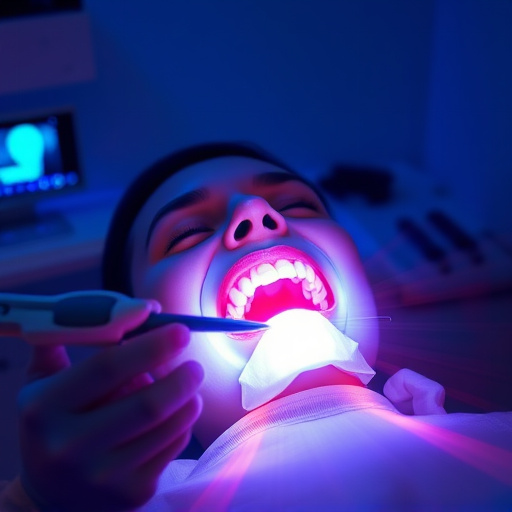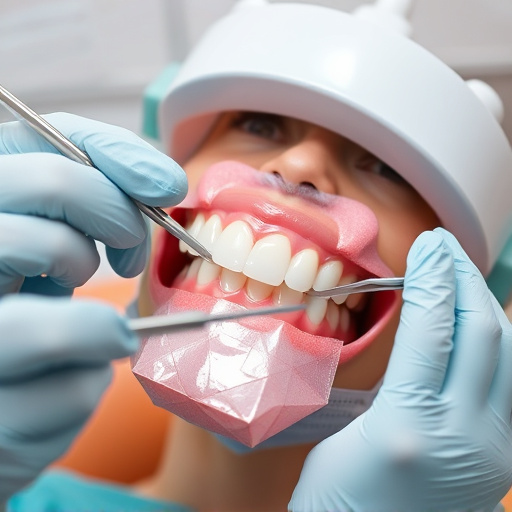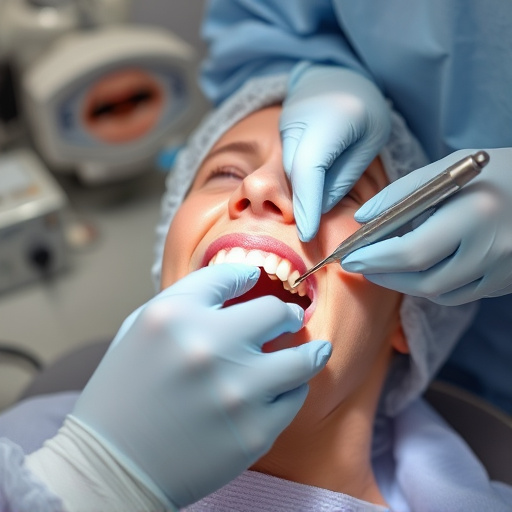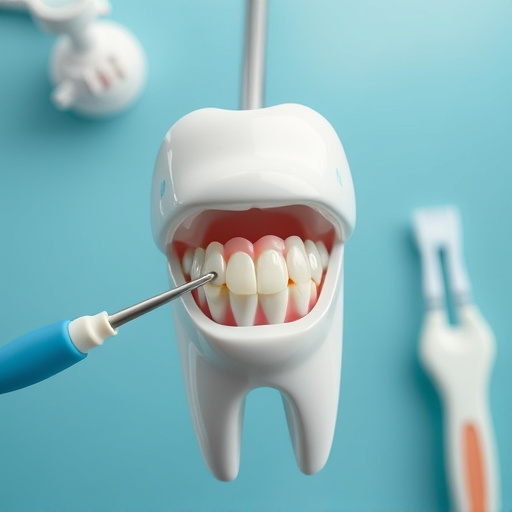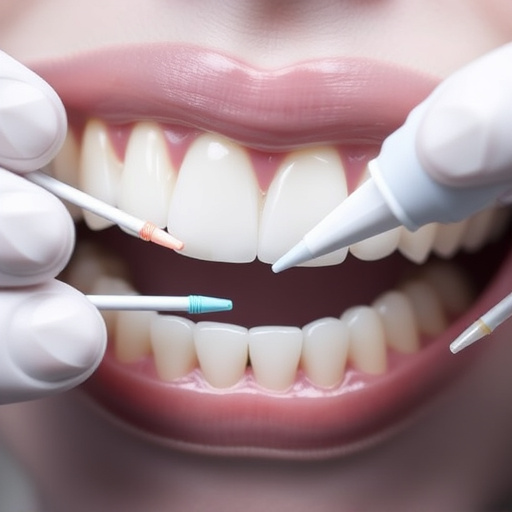Antibiotic therapy treatment is key for managing dental abscesses, targeting bacterial infections and aiding healing. Dentists assess severity and prescribe oral or topical antibiotics like amoxicillin or clindamycin. Adjunctive treatments like dental bonding may be suggested. Post-therapy, strict adherence to cleanliness, rest, medication, and regular check-ins with dentists is crucial for recovery, especially in children where engaging follow-up visits foster cooperative behavior and positive care relationships.
Dental abscesses, painful infections at the root of a tooth or in the gum tissue, require prompt action. One effective treatment option is antibiotic therapy. This article delves into the role of antibiotics in managing dental abscesses, exploring their mechanism, application by dentists, and post-treatment care. Understanding antibiotic therapy treatment empowers patients to navigate abscess management effectively, alleviating pain and promoting oral health.
- Understanding Antibiotic Therapy for Dental Abscesses
- When and How Dentists Prescribe Antibiotics
- Effective Management Strategies Post Antibiotic Treatment
Understanding Antibiotic Therapy for Dental Abscesses
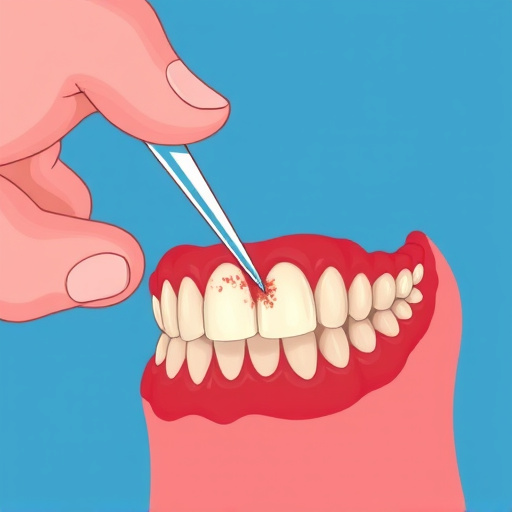
Antibiotic therapy treatment plays a pivotal role in managing dental abscesses, offering a targeted approach to combat infection and promote healing. This type of therapy involves the prescription of antibiotics to eradicate bacteria causing the abscess. By introducing these medications, dentists provide a comprehensive dental care solution that goes beyond routine general dentistry practices.
When a patient presents with a dental abscess, which is often a result of tooth decay or gum disease, a dentist will thoroughly evaluate the condition. Depending on the severity and location of the abscess, they may recommend oral antibiotics or topical applications. For instance, common antibiotics like amoxicillin or clindamycin are frequently prescribed to fight bacterial infections. Additionally, dentists might suggest adjunctive treatments such as dental bonding to restore the affected area, ensuring both functionality and aesthetic appeal during the recovery process.
When and How Dentists Prescribe Antibiotics

When a patient presents with an abscessed tooth or gum disease, dentists often prescribe antibiotic therapy treatment as part of their comprehensive management plan. Antibiotics are powerful tools in dental care, specifically targeted at eliminating bacterial infections and promoting healing. The decision to initiate antibiotic therapy is based on several factors, including the severity of the infection, the patient’s medical history, and the overall health status.
Dentists typically prescribe antibiotics when non-antibiotic treatments, such as teeth cleaning or dental bonding, are insufficient to resolve the abscess or gum disease. For instance, in cases of periapical abscesses (abscesses at the tip of a tooth) following dental procedures like dental crowns, antibiotic therapy may be recommended to prevent the spread of infection and reduce inflammation. The antibiotics are carefully selected based on the type of bacteria involved, ensuring their effectiveness while minimizing potential side effects.
Effective Management Strategies Post Antibiotic Treatment

After completing antibiotic therapy treatment, effective management strategies are crucial for ensuring a full recovery. Patients should adhere strictly to their dentist’s post-treatment instructions, which often include keeping the treated area clean and dry, avoiding strenuous activities that could disrupt the healing process, and taking prescribed medications as directed. Regular check-ins with the family dentistry or emergency dental care provider are essential to monitor progress and address any complications promptly.
For children’s dentistry patients, it’s important to make these follow-up visits engaging and less intimidating. Dentists can play educational games or use visual aids to explain the healing process, helping young patients understand their role in recovery. This not only promotes cooperative behavior but also fosters a positive relationship between the child and their dental care team, setting the stage for future preventative care practices.
Antibiotic therapy treatment plays a pivotal role in managing dental abscesses, offering a targeted approach to combat infection and promote healing. By understanding the appropriate usage, timing, and post-treatment care, both dentists and patients can ensure effective management of abscesses, leading to optimal oral health outcomes.

